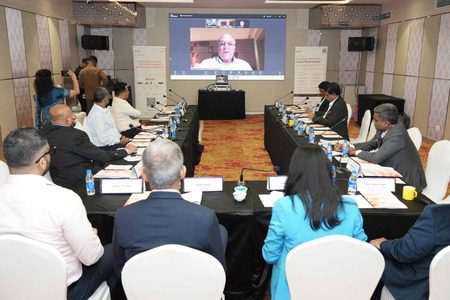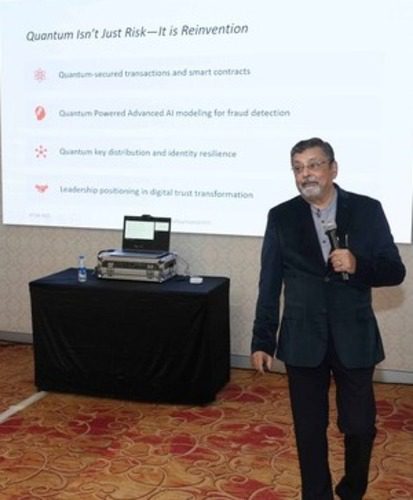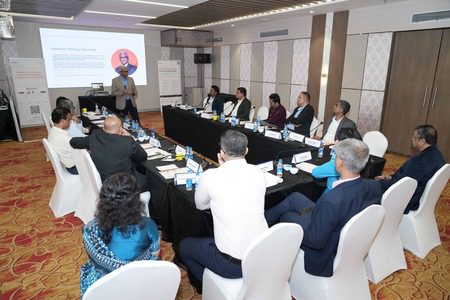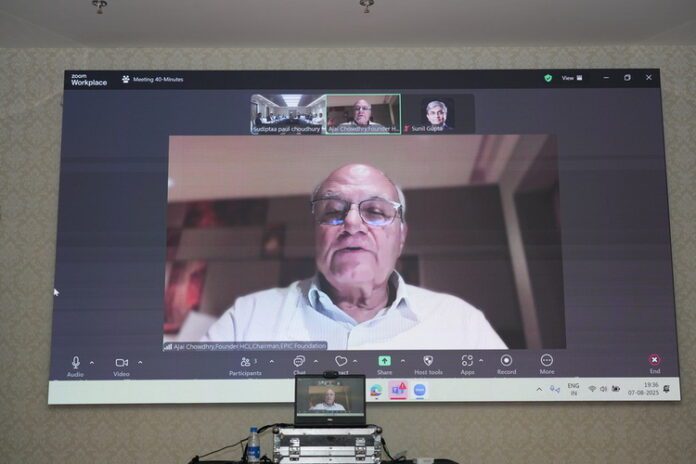Tech Achieve Media hosted an exclusive CXO Roundtable on “Quantum Suraksha — Quantum-Resilient Cybersecurity in the BFSI Sector” in Mumbai on 7 August 2025. The roundtable was convened to spark dialogue on why BFSI leaders must prepare for the looming quantum threat, and to explore strategies for building resilience in India’s financial ecosystem. Among the key participants were senior BFSI leaders and technology experts, including QNu Labs, World’s only end to end integrated quantum-safe cybersecurity company, who shared their insights on the global and Indian preparedness for Q-Day providing the BFSI landscape.

The roundtable opened with an address by Dr. Ajai Chowdhry, Chairman, National Quantum Mission (NQM), who emphasised the importance of Atmanirbhar approaches to strengthen the cybersecurity posture of India’s BFSI sector. He underlined that quantum-resilient systems would be essential to protect the foundations of India’s digital economy.

Prof. Ajay Singh, Member, National Quantum Mission Task Force, delivered a presentation on the quantum threat landscape and assessed the preparedness of banks to counter Q-Day, and the point at which quantum computers could potentially break existing cryptographic standards.

Sunil Gupta, CEO and Co-founder, QNu Labs, shared his perspective on the global BFSI quantum threat landscape, noting that financial institutions worldwide are beginning to recognise the urgency of transitioning to quantum-safe systems. He highlighted that while awareness of Q-Day risks is growing, the pace of preparedness varies significantly across regions. According to him, early adopters in global markets are already exploring phased implementations of quantum-safe encryption, while others are still weighing the impact on compliance, digital trust, and operational resilience. Gupta stressed that India must accelerate its adoption curve to remain competitive and secure in the evolving global financial ecosystem.
Also read: Quantum Encryption takes the Ransom Out of Ransomware – Sunil Gupta, QNu Labs
He also outlined QNu Labs’ pioneering role in this journey. As India’s first and the world’s only deep tech quantum technology company, QNu Labs provides an end-to-end quantum-safe integrated platform, including hybrid solutions ranging from Quantum Key Distribution (QKD) for secure key generation and management, Quantum Random Number Generators (QRNG) for creating true randomness, to Post Quantum Cryptography (PQC) software solutions such as quantum-safe VPN, secure messaging and collaboration tools, file sharing, and encryption. Together, these solutions are enabling the BFSI sector and other critical industries to build a truly quantum-safe world.
Also read: HDFC Bank Invests in Quantum Cybersecurity Start-up QNu Labs
QNu Labs’ solutions are already deployed in India and globally, with case studies across Defence, Government, PSU, BFSI, Telecommunications, Automobile, and other critical sectors. Its products are patented, tested, certified, and commercialised, underscoring both their technological maturity and real-world applicability.
Discussions during the session covered key themes such as crypto agility, Q-Day risk preparedness, and the evolving regulatory environment for BFSI cybersecurity in India and globally. Participants explored how the sector currently perceives the quantum threat, whether as an immediate disruptor or a longer-term concern, and examined where encryption fits within broader cybersecurity strategies beyond ongoing challenges like ransomware and compliance audits. The dialogue also addressed the potential vulnerabilities of existing encryption methods if quantum computing progresses faster than anticipated, the preparations underway to move toward quantum-safe encryption, and the varying perspectives on whether this transition is an urgent necessity or a gradual shift.
Further deliberations highlighted the internal challenges slowing down the adoption of advanced encryption technologies, including technical, operational, and cultural barriers. Attendees also discussed the potential wider impact of quantum threats on areas such as digital trust, regulatory exposure, and operational continuity.







